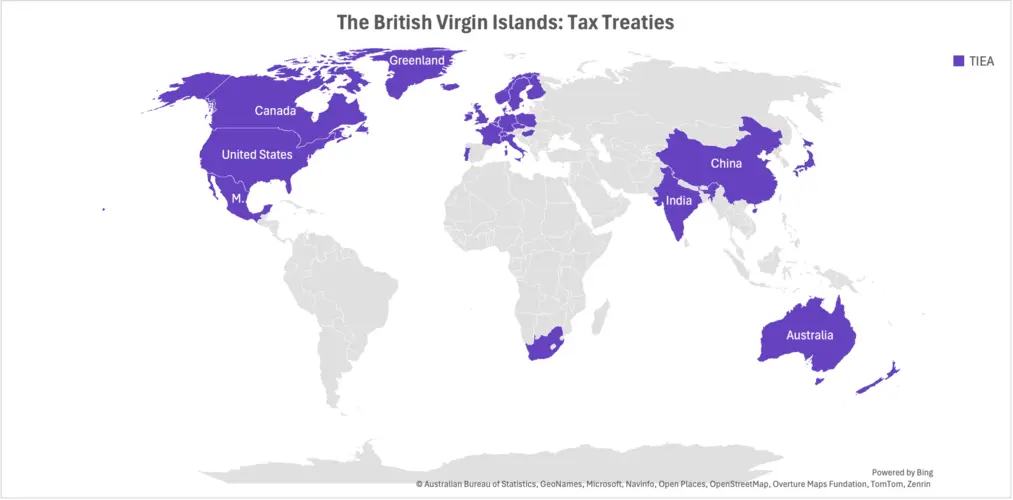Local legislation, according to the FSC website, allows for the registration of several types of legal entities and legal formations, such as:
- BC (Business Company) – one of the most common forms.
- Limited partnerships.
- MBC (Micro Business Companies), there is a limit on company size and transactions.
- Trusts usually choose to register VISTA.
BC (Business Company)
Under the Business Companies Act 2004, 5 types of business entities can be formed:
- a company limited by guarantee;
- a company limited by guarantee without the right to issue shares;
- a company limited by guarantee with the right to issue shares;
- unlimited company without the right to issue shares;
- unrestricted company with the right to issue a share.
BC is one of the most chosen forms for offshore company registration as it requires a minimum of one manager and one owner. BC is allowed to conduct commercial activities, but it is necessary to have a registration agent and an office where all the memorandum of association and information will be kept. The name must have an abbreviation indicating the form of activity (Ltd, Inc, Corp). On average, the size of the initial capital reaches $50,000.
Company limited by shares
A limited liability company may issue shares, whereby the shareholders are not liable for the obligations of the company but have voting rights according to the shares held. It is permissible for the owner and manager to be the same person. The registration agent has the right to appoint a director within six months, who must then issue shares in the company.
Company limited by guarantee
A company limited by guarantee (with or without the right to issue shares) must have at least one guarantor member, who may also be a shareholder. The company’s memorandum of association sets out all of the obligations of the guarantor member in the event of the company being wound up.
Unlimited company
The structure of an unlimited company must include at least one member. The members have unlimited liability for all obligations of the company and contribute to the assets of the company in the event of liquidation.
Limited partnerships
LPs (Limited Partnerships) are established subject to the fulfillment of all the provisions of the Limited Liability Partnerships Act 2017. It is mandatory to have a written agreement specifying the rights and obligations of the partners of the LP.
When registering this legal form, submit to the Registrar:
- An application with the name and address of the LP.
- A statement indicating the term of creation of the LP.
- Details of each partner, such as name and place of residence.
- A statement from the registration agent.
Micro Business Companies
MBC is most suitable for startups. However, there are restrictions on transactions (only as per the previously stated business purpose), number of employees, shares, and annual turnover. Also, MBCs cannot engage in providing financial services.
MBC can conduct business outside the territory. Only physical persons can be shareholders of the company. All information about the owners of the company is held by the registration agent, and the company’s records of its current activities are kept at the registered office.
Restricted purpose company
A limited-purpose company has the abbreviation SPV Ltd at the end, which is similar to BC but is limited in the type of transaction. The memorandum of association sets out all the business objectives, and it is prohibited to make any changes to the memorandum or alter it.
In addition, a company with limited objectives can be a segregated portfolio company – SPC. Usually, this type of organization is required to hold the assets of institutional investors, to manage several types of business with a separate portfolio (assets and liabilities of each portfolio are segregated from each other), and to dispose of real estate. When registering an SPV, it is required to fulfill such criteria as obtaining authorization from the FSC.
Trusts
Trusts are interesting for conducting business related to the management of capital, property, land plots, transfer of inheritance, and preservation of control over family business. The main legislation regarding trusts was the Trustee Act 2003 (from 2020).
The most common types of trusts in the BVI are:
- Specialty trusts (VISTAs) are set up to hold BC shares. VISTAs are usually chosen by those who own their own business and want to manage their own company while benefiting from the regulation of the property by the trust.
- Discretionary and fixed interest trusts where the circumstances under which the beneficiaries receive income are specified.
- Non-charitable purpose trusts, there are no charitable principles, the trust is created to protect or hold certain assets.
Holding
BCs can also be used as personal investment holding companies (PICs). The main benefits of registering PIC are the storage of assets of the owner or his family (from works of art yachts to a portfolio of securities), ensuring confidentiality, and protection from kidnapping. During a certain period, dividends are paid to shareholders, and then, at the end of the period, the assets are returned to the owner.
Requirements include having one general manager and owner, and a backup director may also be appointed.
E-Commerce
The fast business registration process in the BVI and the favorable business climate with low tax rates have also attracted many e-commerce companies. In addition, company registration can be done online, as well as payment of company setup costs. An e-commerce business can operate with accounts in multiple currencies, use Visa or Mastercard, multiple payment gateway options, and payment systems like Paypal or Stripe to provide its services to the global market. Online businesses have the right to connect offshore servers without using home servers for the transaction, which provides additional protection for the activity.


